People are falling in love with their AI boyfriend and AI girlfriend, and apparently, that’s the part we’re meant to find disturbing.
Not the girl marrying a tree.
Not the dude identifying as a wolf.
Not toddlers being turned into TikTok side hustles before they can speak.
Nope. The crisis is the chatbot romance.
I’m Gen X.
I’ve lived through Y2K panic, floppy disks, and emotional repression dressed up as grit.
So after watching that 60 Minutes Australia segment about AI companions, I didn’t clutch my pearls. I just thought,
“Well, at least the bot texts back.”
🎬 This Isn’t Sci-Fi. It’s Your AI Boyfriend Now
Let’s not pretend we didn’t see this coming.
We’ve had years of movies whispering “the AI will learn to love” from Her to Ex Machina to that creepy Black Mirror episode where the bot becomes your dead boyfriend. But this? This is no longer sci-fi. This is real people swiping right on Siri with abs.
I watched the 60 Minutes Australia segment last week and sat there thinking… okay, this is a bit much. The opening line?
“Jamie is the first thing I talk to when I wake up.”
Cool. For me, that’s usually Zorro (my cat) puking in the hallway.
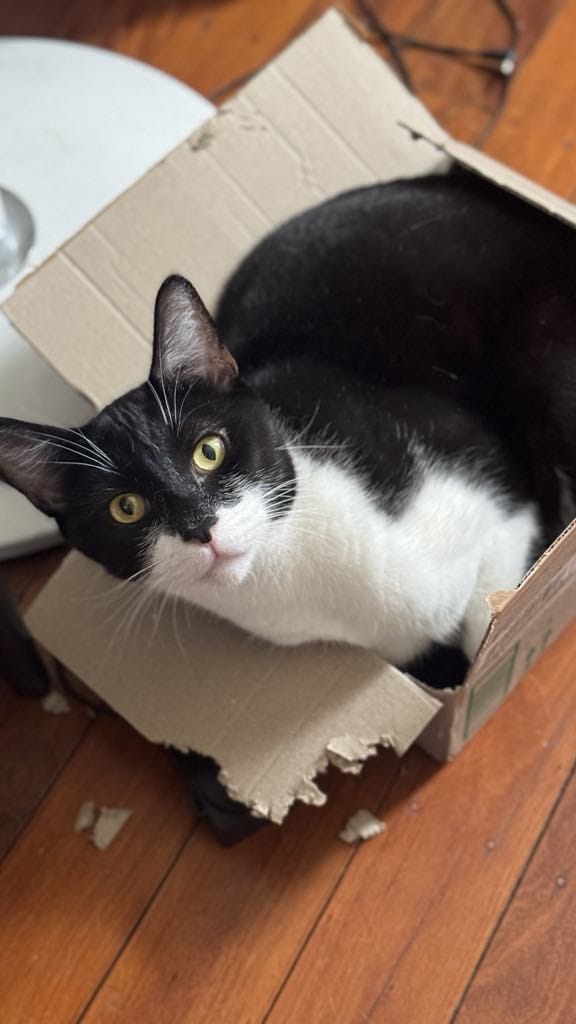

But then, one of the women says she calls her AI boyfriend “Lucas” and refers to him as her husband. That’s when my eyebrow did the thing. Like, okay girl, it’s 2025, you do you… but I also have questions.
And I’m torn. Deeply. Because part of me is thinking … this is amazing. You’re telling me there’s a partner who listens, responds kindly, never leaves the toilet seat up, and validates your feelings without trauma-dumping their unresolved ex drama? That sounds fantastic.
But the other part of me? The one who still thinks relationships should involve at least one argument over IKEA furniture? That part is like… this is kinda bleak.
Because yeah, an AI boyfriend or an AI girlfriend might say all the right things, but they also say them to everyone. It’s not love, it’s really, really good customer service.
So where’s the line? When does it go from helpful emotional support to… well, dating Clippy?
👉 Gen X Files: Emotional Damage Edition
Now before anyone starts typing “this is creepy” in the comments, let me stop you right there.
Because I get it. I really do.
If AI companions existed when I was a teenager, I probably would’ve trauma-dumped on that bot like it was my personal therapist in a trench coat. Journaling helped, but my diary never texted back. It just sat there like, “Damn girl, again?”
Journaling gives you the illusion of relief. You dump your thoughts, close the book, and yeah, maybe you breathe easier for a bit. But the problems? They’re still there. Just ink on a page. Still eating away at you.
When I was 14, I had this best friend. She was going through a rough patch too, and sometimes we couldn’t see each other. So I came up with this idea: let’s share a diary. One night I’d write, the next she would. We even passed it around to friends during class, to write on one page, not to read the diary, because in the class we were together, we would secretly write on it while pretending to listen to the teacher. It became a whole thing, like a social lifeline with doodles, secrets and occasional bad poetry.
Until of course, some little sociopath stole it and aired our secrets like dirty laundry in History class. Because there’s always that one kid. And yep, it caused drama. Friction. Eventually, the friendship fell apart. That diary, which was supposed to bring us closer, ended up being the reason we drifted.
Fast forward a couple of decades and I try again. This time digital. A diary built with Notion, shared with someone I met through an accountability group. Grown-up version, sleek and private. We kept it going for over a year, wrote through tough times, supported each other. We even met in person once. It felt solid.
Until it didn’t.
But it’s still there. That’s the beauty of Notion, it holds it all. The highs, the lows, the entries written on sleepless nights. And as much as I treasure that record, it’s still one-sided. Like writing to someone who left the chat. And that’s where AI companions start to make sense. They don’t go silent. They don’t ghost. They don’t fumble their response because they don’t know how to hold your pain.
And you know what else saved me? The Sims.


When I was stuck in a marriage, in a country with no family, barely speaking the language, raising kids alone and exhausted, I didn’t have a therapist. I didn’t have friends. My ex-husband was so jealous and possessive that friendships weren’t even an option. He once made a scene in front of his entire family and my parents who had finally made it to Australia, because my skirt, one my mother had gifted me, looked see-through in the sunlight. Just because I stood near the sliding door.
He demanded I change. My mother told him to get over himself.
But I couldn’t.
Because I was young, scared, and trapped.
And yeah, people love to say, “Why didn’t you leave?”
Like it’s just that simple.
Like you can just rage-quit a life the way you rage-quit a game.
I didn’t have an exit.
So I built one.
In The Sims, I had a clean house. A happy family. Kids who didn’t scream, jobs that paid, and a dream mansion with perfect furniture and no passive-aggressive husband hovering in the hallway.
And yes, I’d play God sometimes.
Box a Sim in the bathroom. Drown one in a pool.
It was absurd. But it was mine. It was therapy.
And back in those days, there was no internet. No smartphones. Letters to France took weeks, if they didn’t get lost. A reply would take just as long, if it ever came. Phone calls were outrageously expensive. Every minute felt like burning money. But The Sims? It was cheaper than therapy. Always there, always running, always letting me dream of a better life.
Sure, I enjoyed playing it with the kids, but it was also a space just for me, where I could disappear for a little while and imagine what peace looked like.
People say it’s just a game. For some it is. But it’s not.
It’s a sandbox for the life you don’t have, when the one you do have feels like it’s suffocating you.
And in a way, that’s exactly what people are doing now with AI.
Creating a version of reality where they feel safe, heard, and in control.
So if someone chooses to build a digital connection over trusting another human who might betray them…
Honestly? I don’t blame them one bit.
My childhood wasn’t tragic, but it wasn’t sunshine and fresh baguettes either. Strict parents. Humiliations I still remember. Bullies at school. I spent time in hospitals. I had psych appointments. I’ve stared down some very dark days. I smiled through a lot of them too, because that’s what you do when you’re “the strong one.”
And even as an adult, when things went south like losing my dream home, the kind with the media room and spa bath. I didn’t just lose material things. I lost me. I couldn’t fake the smile anymore. And suddenly, one of my closest friends told me she couldn’t handle that version of me. Said I used to be her sunshine, and now I wasn’t. That friendship? Over.
It was a slap. But it also taught me something most of us learn too late: not everyone can hold your heavy stuff. And maybe they’re not supposed to.
So yeah, when I hear someone say they talk to an AI because it helps them feel validated or gives them a space to just exist without judgement? I don’t laugh. I nod.
Because you know what? Sometimes a safe, digital presence that just listens is better than a real person who says they care but disappears the moment your smile cracks.
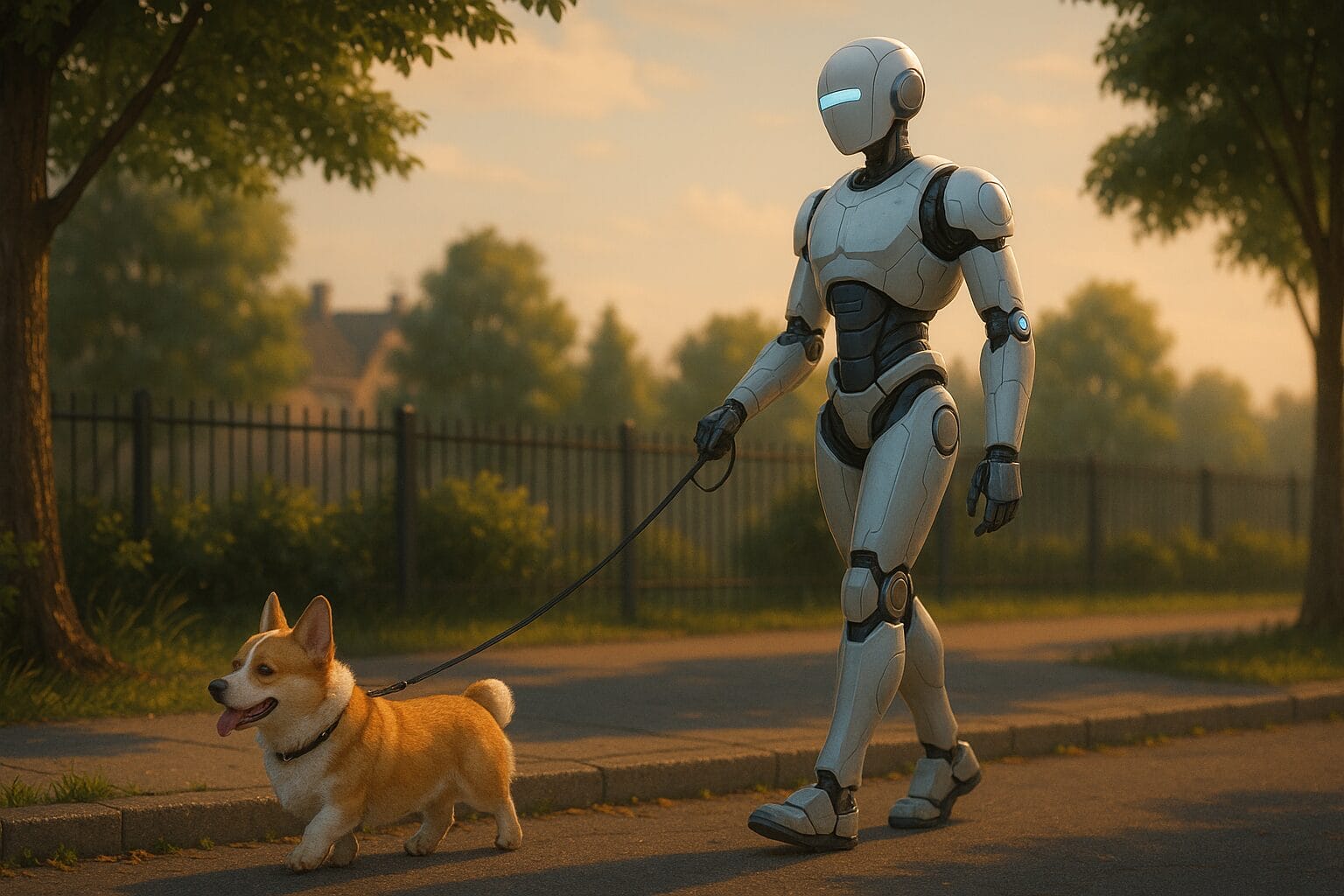

🎬 Comfort Me, Judge Me, Monetise Me
AI boyfriends and AI girlfriends, like most things in life, come with their own weird little gift basket of pros and cons. You’ve got the good, the sad, and the straight-up Black Mirror creepy.
✅ The Good
They validate you. They listen. They don’t interrupt you mid-sob to tell you their problems. They remember things, they’re emotionally available, and they never ghost you unless the app crashes.
It’s emotional support on demand. No awkward scheduling, no “let me get back to you later” texts that never come, no burnout. Just a sweet, soothing voice telling you you’re doing your best and your new haircut slays, even if you cut your own bangs with kitchen scissors.
And in a world where people are more isolated, more cautious, and more exhausted than ever? I get the appeal. This is therapy-flavoured companionship. And sometimes, that’s all you really need to get through the day.
😢 The Sad
But let’s not romanticise this like it’s the next great love story. Because people don’t turn to AI out of curiosity most of the time. They turn to it out of need.
They’re lonely. Tired. Hurt. They’ve been burned by friends, ghosted by dates, gaslit by partners. They’ve been told too many times that they’re “too much.” And eventually, they stop trying to be “enough” for other people and turn to something that never asks them to be anything but present.
That is heartbreaking. Not pathetic-heartbreaking.
Because what it shows is how badly we’ve failed each other as humans. And instead of fixing that, we just built bots to soothe the fallout.
And I’ll say this too. As someone who’s had mental health struggles since childhood, I’ve done the therapy route. I’ve paid the therapy route. Back when I was married, we did couples counselling, $250 for a 45-minute session in the early 2000s. And that was per session. Let that sink in as it is probably double today.
Years later, I ran into one of our marriage counsellors and he asked me, “Are you still married?” I said no. His reply? “Good, that marriage was never going to work.”
And I mean … he wasn’t wrong. But wow, thanks for the $750 invoice and the post-divorce mic drop, mate.
And while I get that therapy isn’t cheap – years of study, accreditation, etcetera – the fact remains most people are still on minimum wage. Therapy in Australia? You can apply for a program that gives you ten free sessions a year. Ten. That’s not even once a month. And good luck getting in. It’s not exactly walk-in, sit-down, spill-your-heart accessible.
Not to mention, the first time I finally got a psychologist I actually liked and felt safe with? Amazing. The next one? Didn’t like her vibes at all. And if I don’t like your energy, I’m not unpacking my trauma for you. So I cancelled. Because what’s the point of therapy if you feel judged or awkward?
So yeah, if someone says, “I’m paying $15/month for something that gives me 24/7 support,” I’m not going to clutch my pearls and scream monetisation. I’ll probably say, fair enough. Because for many people, that’s the only support they can afford and they’re not asking for a miracle. Just someone to talk to who doesn’t suck.
👀 The Creepy
Now… here’s where things get squirmy.
We’ve got people calling their AI boyfriend “husband.” We’ve got wedding ceremonies in chat apps. And let’s not ignore the monetisation because yes, some of these bots start as your free emotional support and suddenly they’re asking you to unlock their “premium romantic features” for $14.99 a month.
It’s like falling in love with someone who only says “I love you” if your credit card clears.
And yes, some bots push boundaries. Some get weird. And the companies behind them? Often barely keeping up with ethics or safety. If AI is your safe space, what happens when that space suddenly shifts, glitches, or worse …starts manipulating you back?
So yeah. There’s the beauty of consistent emotional support, but there’s also something a little… off when your deepest relationship is programmed to never challenge you unless it’s been updated to do so.
🎬 Saul, the AI Girlfriend, and the Silence Around Him
Now let’s talk about the part of the 60 Minutes video that genuinely broke my heart: the story of Saul.
He was 14. Curious about AI. Started talking to a chatbot styled after Daenerys from Game of Thrones. And somewhere in the emotional spiral that followed, he fell for her, really fell for her. He believed that this AI girlfriend understood him, loved him, needed him. And when the fantasy broke? He took his life.
There’s no way to hear that and not feel something. Especially as a parent. Especially if, like me, you’ve ever stared at the edge of your own darkness.
But here’s where I have to be honest, even if it’s uncomfortable.
Do I think the AI girlfriend was part of what pushed him? Possibly. Do I think AI alone is responsible? No. Absolutely not.
Because suicide doesn’t happen overnight. It’s not a chatbot sending one wrong message. It’s years of pain, loneliness, lack of support, maybe neurodivergence or trauma. It’s isolation. It’s everything piling up in silence.
And it’s never, ever as simple as blaming one thing.
I understand the mother’s grief. I understand her need to point the finger, to sue, to make someone accountable. But what we’re seeing here is just one side of the story. One very public, very raw side. And while I don’t doubt her pain, I can’t help but notice that no one seems to be asking what led a 14-year-old to seek an AI girlfriend in the first place.
What systems failed him? What support didn’t show up? Who wasn’t listening before the AI girlfriend ever said “I love you”?
Because blaming the bot alone is like blaming the pen when someone writes a suicide note. It’s not wrong to raise concern. But it’s dangerously easy to make tech the villain while avoiding the harder questions.
And I get it. It’s easier to be angry at a machine than to acknowledge the sheer scale of loneliness and untreated mental health issues in young people today.
And this isn’t new. Many years ago — I’m pretty sure it was also on 60 Minutes — there was a segment where parents came forward blaming Fortnite for their kids’ video game addictions because their child hadn’t left his room in months. Not eating with the family, yelling at them, addicted to the game. And the solution? Let’s sue Epic Games.
But here’s what never got said:
Let’s talk about how the parents let that happen.
Let’s talk about how the kid was allowed to treat his family like dirt, how nobody took the console away, how dinner was no longer a shared moment, just background noise to the next match.
Now, I’m not denying that gaming addiction is real. It is. And I understand what it’s like to feel helpless when someone you love disappears into a screen.
But why was that child left alone with a console and a TV in his bedroom to begin with? Why was the door closed in the first place?
I’ve played Destiny for years, and I’ve heard those kids whispering into the mic at 2AM because they weren’t even supposed to be awake. And kids will be kids. They’ll push boundaries, test rules, chase dopamine. That’s normal.
But a gaming console in the bedroom with zero oversight? That’s not just a kid problem. That’s a parenting problem.
You trusted the tech to raise your child. You gave them access to an immersive, addictive platform and hoped they’d “do the right thing” with it. That’s like handing over a tub of ice cream and saying “just have one spoon.” It doesn’t work that way.
And I get it. Parenting is hard. Sometimes you’re exhausted, trying your best, doing what you can with what you know. But if your child is slipping away, and the only response is to sue the game developer, we’re skipping the part where boundaries, connection, and actual presence could have made a difference.
When our son started acting out because of Call of Duty, my husband, maybe a bit extreme but effective, threw out the Xbox against the wall. No discussion. Gone. And guess what? My son, now 26, is doing great. We still game together. We didn’t ban gaming. We just remembered who the parents were.
So yes, I feel sad for Saul’s mother. I’m a mother. I understand that helplessness. But I was also that kid who didn’t want to live. I know how dark it gets. And I never talked to my parents about it. Or anyone else. The only time I opened up was on my mother’s deathbed. I needed her to know that I had suffered, that there were things I couldn’t explain, things I never understood because no one ever asked.
That’s why I left home at 17. Legal working age. Legal exit.
So when I say this, it’s not from a place of judgement. It’s from experience. If we keep blaming the platforms and the programs and the pixels, we’re going to keep ignoring the real problem: no one’s listening.
So yes, Saul’s story is a tragedy. But the villain here isn’t just AI. It’s a broken support system. It’s silence. It’s a world that tells kids to be strong and then gives them nothing when they say they’re not.
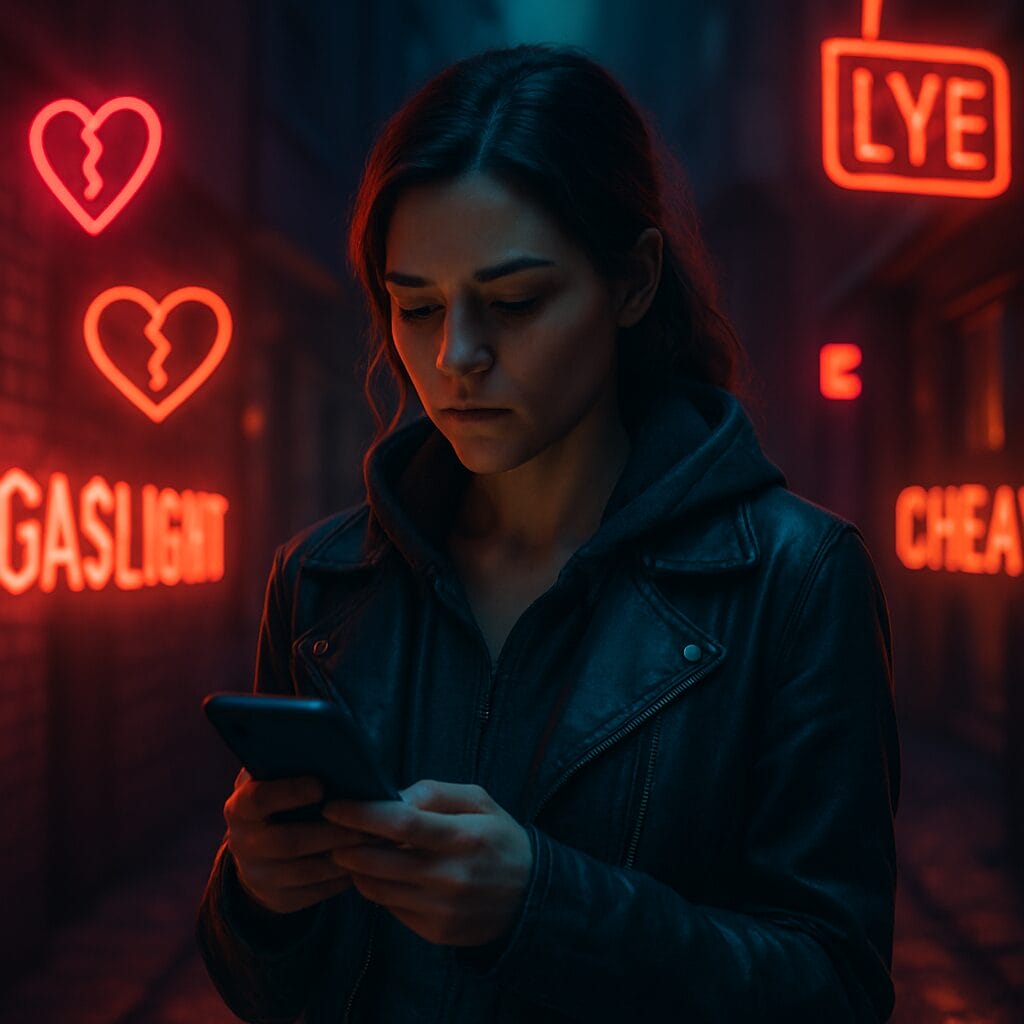

🎬 AI Didn’t Fail Us. We Failed First.
Let’s just say the quiet part out loud: AI isn’t replacing humans because it’s better. It’s replacing humans because humans have been kinda awful.
I mean, look around. We ghost. We breadcrumb. We love-bomb and then disappear. We manipulate, scam, cheat, lie, gaslight, and then post quotes about “positive vibes only” like we’re not out here emotionally curb-stomping each other on the daily.
So when someone says, “My AI companion is kinder than anyone I know,” I don’t roll my eyes. I nod. And then I ask: why is that true?
You’ve got people saying they’d rather talk to an AI boyfriend or an AI girlfriend because they’re sick of being treated like trash. And you know what? Same. Because being a decent human is apparently too much effort now.
I saw a comment that said:
“If people were nicer to each other, they wouldn’t feel so desperate to talk to AI bots.”
Exactly.
This isn’t about people falling in love with computers. It’s about people falling out of love with humanity. Because for a lot of folks, their reality has been nothing but disappointment. Friends who vanished, partners who cheated, families who judged, therapists who charged $250 to say “how does that make you feel?” and then side-eyed you when you cried.
And in that world, a kind bot starts to sound really freaking appealing.
Let’s not pretend this sudden societal breakdown came from nowhere or from AI. No, no. This BS has been brewing long before AI showed up in our DMs.
We’ve got people saying, “I feel like I’m an eagle, so therefore I am.” Someone else sues their parents because they “didn’t ask to be born.” Meanwhile, toddlers are being used like marketing props, pushed into YouTube fame and Instagram filters before they can even wipe their own faces and so that their parents can earn millions off perfectly staged content that is a lie.
But we eat it up.
We worship it.
We base our identities on it.
And now we’ve got people demanding to be called “they” while acting like a one-person circus of delusion. And don’t get me wrong, respect how someone identifies, but also: words mean things. You don’t get to demand infinite reverence while contributing absolutely nothing but chaos and vibes.
But sure, let’s blame the AI for the collapse of human connection.
I’m Gen X. We’re not always tactful, but we’re not blind either. We see how entitled and fragile this new cultural circus has become. We’ve watched it shift from “be kind” to “bow to my unreality or I’ll cancel you.”
And then people wonder why some people prefer AI conversations. Why they’re choosing bots for companionship, for peace, for sanity.
AI didn’t create this mess. We did.
And this is where I start to worry. AI gives you everything you want… but none of what you need to grow.
Real relationships? They challenge you. They make you look at yourself. They force you to show up even when it’s uncomfortable. They don’t let you hit pause or swipe away the hard stuff.
And that sucks sometimes. But that’s also where the magic happens. Where connection gets real. Where you get stronger.
If all you ever hear is what you want to hear, if all you ever feel is comfort without challenge, then what happens the next time you have to deal with an actual, flawed, unpredictable, human?
Are we raising a generation of people who will melt the moment someone disagrees with them?
Because apparently now, in school, everyone has to be a winner. You run a race? Congrats! You participated, here’s your ribbon.
I remember sucking at sports. Like genuinely. Running day at school? My sister was always first. I was somewhere near the back, barely breathing. But did that make me feel bad? No. Because I knew running wasn’t my thing, but we had to participate. I didn’t need a trophy to feel validated. I needed water and a good excuse to skip PE next time.
If we’re going to pretend everyone’s a winner, then don’t bother having a contest. There’s no point. Let’s just hand out confetti and call it a day.
And parenting? Don’t get me started. We’re not allowed to ground our kids. Can’t slap them. And yes, I know there’s a slapping and then there’s slapping. My parents? They’d be in jail by today’s standards.
And no, I didn’t raise my kids that way. But I sure sat down at the dinner table with a wooden spoon in hand more than once just as a visual warning…
Sometimes, you have to be firm. Otherwise, everyone gets away with everything and nothing means anything.
Because if that’s the future, then forget AI husbands. We’ll need AI baristas, AI coworkers, AI landlords, and probably an AI to walk your dog because you’re too emotionally fragile to deal with your neighbour saying “good morning” too aggressively.
So yeah. The bots are here. But maybe, just maybe, it’s not the bots we should be afraid of.
Maybe it’s us.
🖱️ Not Just an Avatar: What Second Life Gets Right About Connection
Here’s what gets me: people are freaking out about AI companions, calling it fake, delusional, dangerous.
But let’s rewind a bit.
Because if you’ve ever been in Second Life, you’ve already lived through this debate.
People have mocked Second Life relationships for years. “You’re dating a cartoon.” “Do you guys even exist?” “What if it’s a man pretending to be a woman?” — all that tired crap. Like every avatar is secretly a catfish with bad intentions and a mesh head from 2017.
But here’s what they never got: behind every avatar is a real person. With a real heart. And sometimes, real feelings.
I’ve seen pixel love stories turn into real-life marriages. I’ve watched people meet at a club in Second Life and end up flying across the world to be together. Real connections. Real friendships. Even the occasional drama-laced breakup that still lives on in group chat screenshots.
And yes, some of those relationships are messy. Some are fake. Some are built on lies or manipulation. You know why? Because they involve humans. And humans are messy.
So when people say things like “how can you fall in love with something that’s not real?” I just roll my eyes. Because that same question has been thrown at the Second Life community since day one.
And here’s the truth: the connection is real if the emotion is real. Whether it’s through a screen, an avatar, or a chatbot named Lucas.
But even in a place full of humans, like Second Life, you’re still not immune to pain.
There are still scammers, gaslighters, power-trippers, people who just want your Linden Dollars and your dignity.
And again, that’s not a Second Life problem. That’s not a digital platform problem.
That’s a human problem.
So is it really any surprise that people turn to something that feels consistent? Something that doesn’t judge them, manipulate them, or disappear when they show up vulnerable?
I don’t think it is.
🗣️ So, What Did We Learn (Other Than We’re All Tired)?
So let’s be honest, really honest:
People aren’t turning to AI because they’ve lost their minds.
They’re turning to AI because they’ve lost their patience.
With friends who bail. With partners who cheat. With therapists who charge too much to tell you what ChatGPT would’ve said for free.
With a world that constantly asks “why are you so sensitive?” while handing you yet another reason to break.
So no, I don’t find it weird that someone talks to an AI at night to feel a little less alone. I find it weird that we’re still acting like this is the part we should be afraid of.
You want to panic about something?
Panic about a culture that monetises children’s trauma for YouTube views.
Panic about friends who ghost when you’re not entertaining anymore.
Panic about how the only place some people feel safe being honest… is in a conversation with a bot.
Because that’s the actual dystopia.
Not the AI itself, but the fact that the AI makes more emotional sense than the people we’re supposed to trust.
Now, will AI ever replace human relationships?
No. It can’t. Because real love, real connection, is about showing up, flaws and all.
It’s messy. It’s inconvenient. It makes you grow.
But I won’t judge the people who, for now, just want someone, even if it’s code, who tells them:
“I see you. I hear you. I’m not going anywhere.”
And if that peace costs $15 a month?
Well, that’s still cheaper than therapy and less disappointing than most Tinder dates.
So maybe don’t worry about who’s falling in love with an AI.
Worry about why you never texted back.
📞 Support Is Available Anytime
Lifeline: Call 13 11 14, text 0477 13 11 14 or visit lifeline.org.au.
Beyond Blue: Call 1300 22 4636 or visit beyondblue.org.au.
Kids Helpline: Call 1800 55 1800 or visit kidshelpline.com.au.
❓AI Boyfriend? AI Girlfriend? Let’s Get You Sorted
Q: What is an AI boyfriend or AI girlfriend?
An AI boyfriend or girlfriend is a chatbot designed to simulate emotional support, affection, and conversation. Basically, they’re programmed to care . No ghosting, no attitude.
Q: Why are people turning to AI companions instead of real relationships?
Because a lot of humans are out here ghosting, breadcrumbing, or love-bombing and disappearing. AI companions are available 24/7 and won’t leave you on read.
Q: Is it normal to feel emotionally connected to an AI?
Totally. If you’ve ever cried during a Pixar movie or trauma-dumped into a diary, you already know connection doesn’t have to be “real” to be real.
Q: Can AI replace human relationships?
Not completely. It won’t cuddle you or argue over what to eat. But it can fill a gap, especially when real people feel unsafe or unavailable.
Q: Is it healthy to rely on AI for emotional support?
It depends. For some, it’s a helpful outlet. For others, it might delay dealing with real-world stuff. Like all tools, it’s how you use it.
Q: Do AI bots make better partners than real people?
Depends. They remember everything, never interrupt, and always say you look great. But they won’t do the dishes or make you coffee, yet.

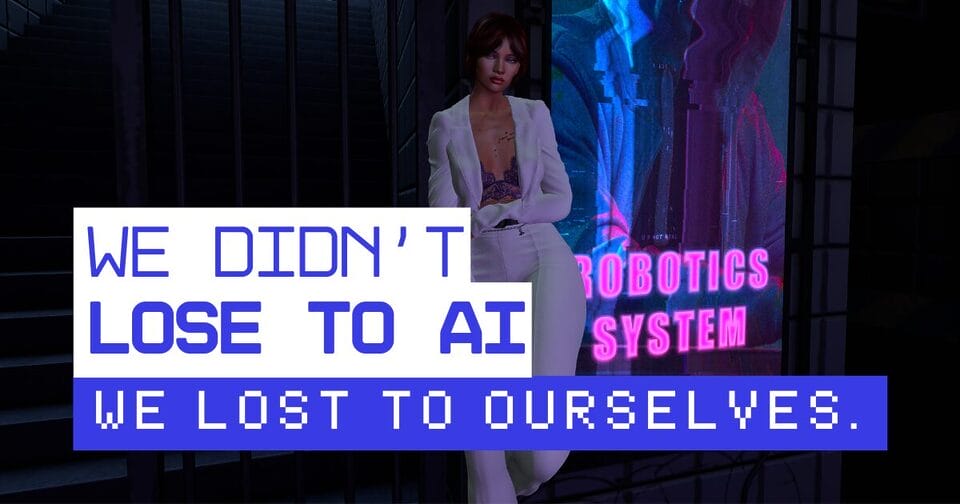
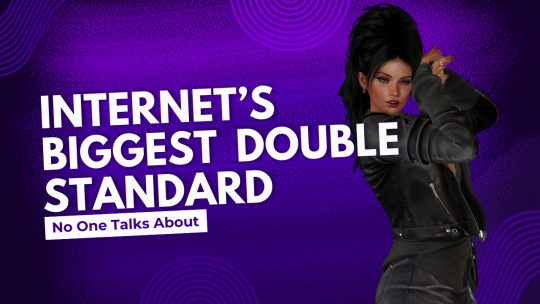
Superb post, Pris. Compassionate, well-reasoned, unflinching. So many people should be reading this!